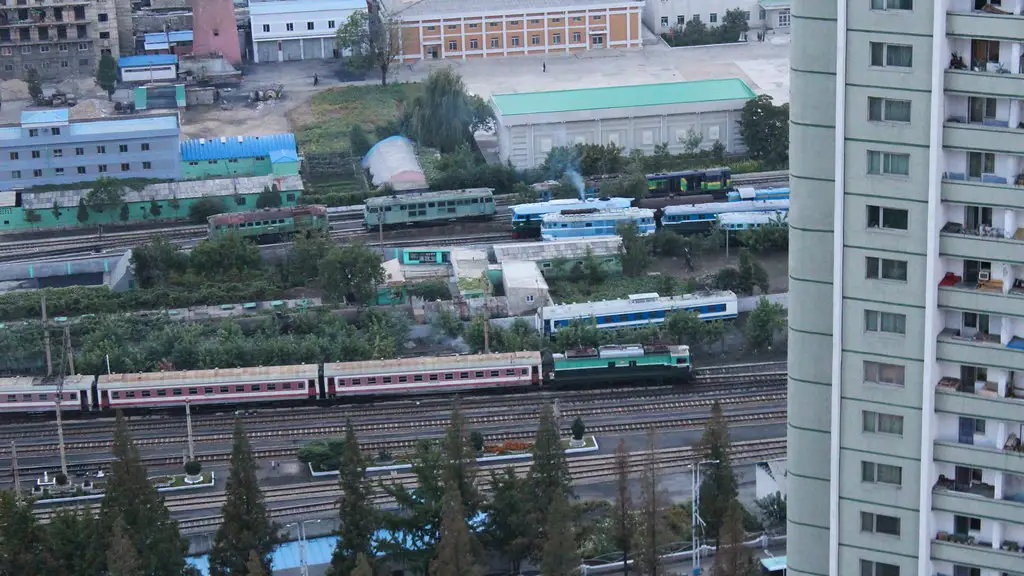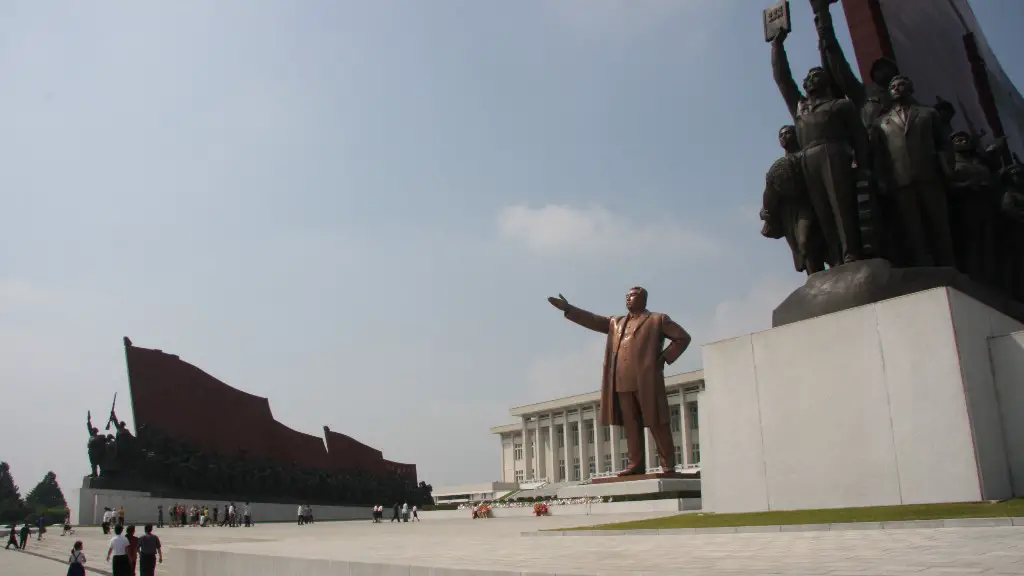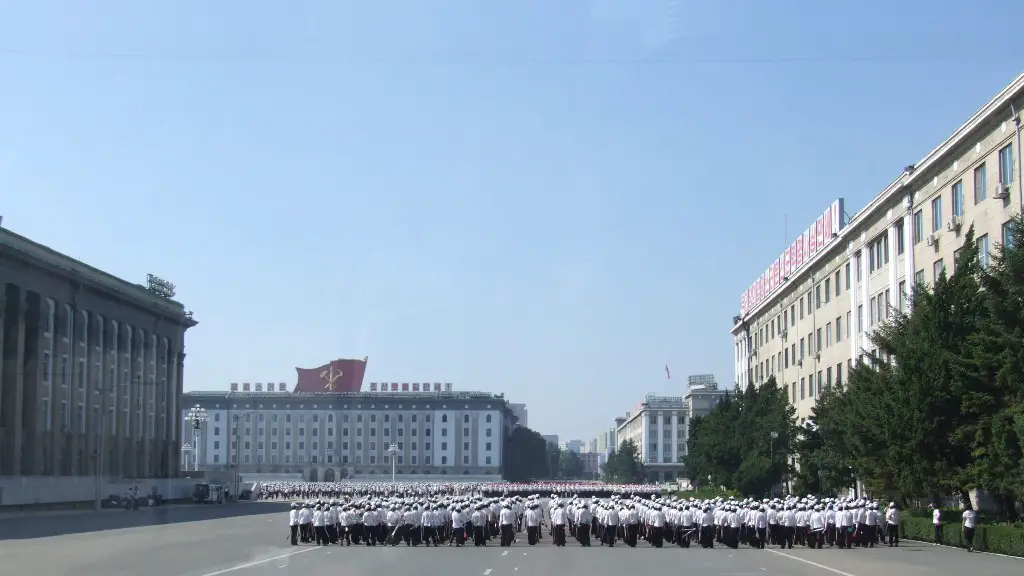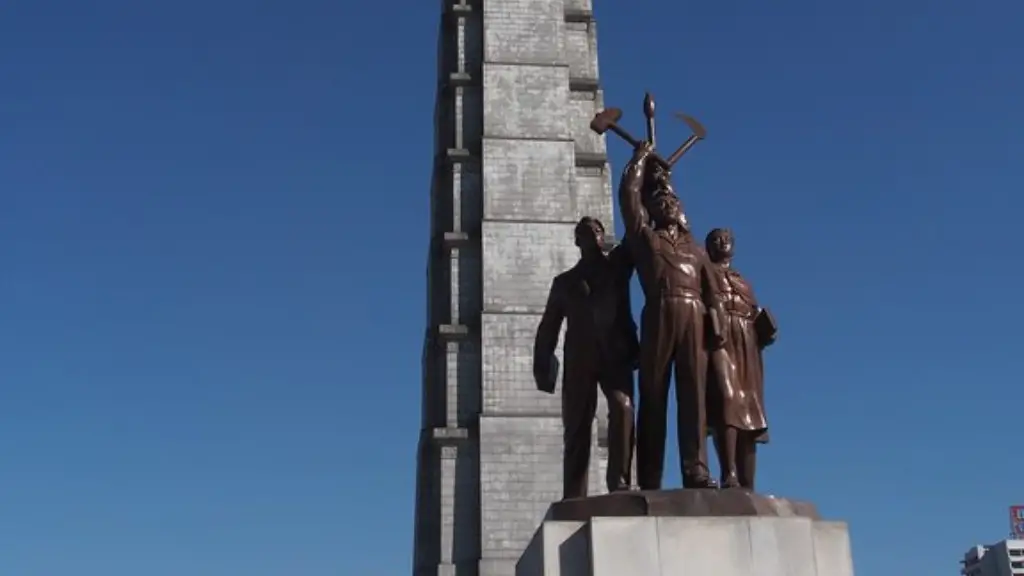What On Earth North Korea
The Democratic People’s Republic of Korea, commonly known as North Korea, is one of the most isolated nations in the world. It is positioned on the northern half of the Korean Peninsula bordering China, Russia, and South Korea. North Korea’s leader, Kim Jong-un, has imposed some of the world’s strictest regulations on its citizens, which has led to extreme poverty, starvation, and government-sanctioned human rights violations.
Almost all Western-style media, including television shows and the Internet, are banned in the country and replaced with propaganda that centres around the ruling Kim family. The country has such an oppressive regime that few North Koreans have any knowledge of what a free and democratic nation looks like.
Although North Koreans are not allowed to travel abroad unless given official government permission, an accurate picture of the punishments they may face if they disobey is difficult to come by. Because of this, many observers rely on accounts from defected North Koreans who have managed to flee the country. These accounts reveal that anyone who is caught speaking negatively about the state is subject to “re-education” in a prison camp. These camps are notorious for their horrific living conditions and brutally inhumane treatment of prisoners.
Despite these human rights abuses, the North Korean government has managed to maintain a degree of influence in the region. This is due in part to its rapid economic growth in recent years, boosted by foreign investment, as well as its close ties with China. The North Korean economy has also benefitted from its large reserves of minerals and resources, such as gold and iron ore, which have helped to fill state coffers.
The country has also managed to survive and even expand its nuclear weapons program, despite international sanctions aimed at curbing its progress. This program has been a major factor in the country’s diplomatic relationship with the United States and other neighbouring countries, as well as its ability to leverage the international community for aid and resources.
Traditionally, North Korea has acted as a buffer state between the US and its allies in the Korean Peninsula. This has led to a tense relationship between the two Koreas and created a “spaghetti bowl” of alliances and allegiances that often leave observers scratching their heads. As a result, modern observers can only speculate as to what the future holds for North Korea, and the world as a whole.
UN Sanctions
The United Nations has enshrined the economic sanctions levied on the North Korean regime in multiple resolutions since 2006. These have been in response to its nuclear activities and the lack of cooperation with international non-proliferation organizations. The sanctions have been steadily increased over the years, including an oil embargo in 2017, and are designed to cripple the North Korean economy and force the government to come to the negotiating table.
However, these sanctions have had mixed results. While the North Korean economy has shrunk in recent years, the government has continued to fund its nuclear weapons program and the living standards of its citizens remain tragically low. In addition, the sanctions have in the past driven North Korea even deeper into isolation, prompting a cycle of ever more extreme responses from the government.
The sanctions have nevertheless been seen by some as the only viable path to peace on the Korean Peninsula. Many experts view the sanctions as the only chance to get the North Korean government to listen to the international community, while others worry that they could lead to further destabilization of the region.
Ultimately, whether the UN sanctions have had any tangible effects on North Korea’s behavior is still up for debate. Nevertheless, the international community must be prepared to take strong and collective steps to address the country’s nuclear aspirations and its gross human rights abuses, lest it continue its march down a dangerous path of isolation and militarization.
US-North Korea Relations
The relationship between the United States and North Korea has long been strained, even before the Korean War. Since then, the two countries have continued to be at odds, with the US imposing military and economic sanctions on the North Korean regime in an effort to bring about peaceful change. But this has had little effect, leading to a sense of stalemate and mistrust.
Recently, however, the Trump administration has taken a different approach and is attempting to establish a more constructive relationship with North Korea. This has included offering to end economic sanctions in exchange for North Korea’s denuclearization, as well as diplomatic meetings between Trump and Kim Jong-un. While these talks have not yielded any concrete results, they have given hope to many that a peaceful resolution to the North Korean nuclear crisis may still be possible.
At the same time, many are concerned that this new approach may be too lenient and overlook the human rights violations in North Korea. They argue that only a strong and unified stance from the international community will pressure the regime to make real changes and improve the living conditions of its citizens.
A key factor in this debate is the role of China, which is seen by some as a barrier to progress in the economic, political, and human rights front. There is a perception that China is too invested in keeping North Korea stable and has not done enough to adequately address the human rights violations in the country.
In the end, the US and its allies must find a way to balance its concerns for the security of the region with its desire to bring about genuine change in the hermit kingdom. Only when the international community speaks with one voice will North Korea finally be forced to address its human rights abuses and begin to see a brighter future for its citizens.
Role of South Korea
The relationship between North and South Korea has been deeply strained since the end of the Korean War in 1953. There have been several attempts at reconciliation over the years, but these have always been hampered by the North’s stubborn refusal to cooperate. Despite this, South Korea has remained committed to trying to reach out to its Northern neighbor and foster a sense of peace and mutual understanding.
South Korea’s position as a prosperous democracy and its close ties to both the US and China have allowed it to act as a mediator between the two superpowers. The South has also sought to strike a balance between keeping the US-led sanctions in place to pressure the North, while also offering humanitarian and economic assistance. In recent years, it has also opened up to the idea of a “peace zone” to promote cooperation and dialogue between the two sides.
The success of this approach remains to be seen, as the North has been reticent to engage with the South. However, it is an important step that could pave the way for a lasting peace between the North and South, as well as help the region to regain its balance in the face of a resurgent China.
Reunification
The concept of a unified Korea remains a dream for many in both the North and South. However, for this to become a reality, many challenges and obstacles must be overcome. The country is currently divided by a heavily militarized border, and the two sides remain politically, economically, and culturally distinct from one another. This raises the question of whether reunification is even possible and, if so, what form it would take.
Many experts have proposed a gradual reunification process, beginning with economic and cultural exchange between the two sides, followed by political reconciliation and ultimately a more formal reunification. This, of course, would need to be backed up by strong and united international support. But there are also concerns that such a move could lead to a surge in refugees and other destabilizing consequences, making it a delicate and politically dangerous endeavor.
Ultimately, it remains to be seen whether reunification is a feasible goal in the near future, or whether it will remain a distant dream. In either case, it is important for the international community to remain engaged in the process, and to support both North and South Korea in their pursuit of peace and a brighter future for the Korean Peninsula.
China’s Involvement
China’s relationship with North Korea is a complex one. On the one hand, China has provided North Korea with economic and military support for decades. On the other, China has also been one of the most vocal critics of North Korea’s nuclear weapons program. As such, it has been at the forefront of international efforts to push the North Korean regime to denuclearize.
Now, with the US pushing for tougher sanctions and a more assertive approach to dealing with North Korea, China appears to be in a tough spot. It is wary of the instability that aggressive US policies may cause, while also facing pressure from Washington to apply more pressure on the North. Its balancing act between advocating for dialogue and standing firm on sanctions has put it at risk of angering both sides.
At the same time, China has become increasingly frustrated with North Korea’s refusal to denuclearize, and by the country’s continued human rights abuses. This has led to a shift in China’s stance towards the North, with the Chinese government pushing for more decisive action from the international community.
Ultimately, China’s role in the ongoing North Korean dispute will be pivotal in determining whether real progress can be made. Its balancing act between the US and North Korea is likely to remain in the spotlight, as the international community seeks to bring about a lasting peace on the Korean Peninsula.





